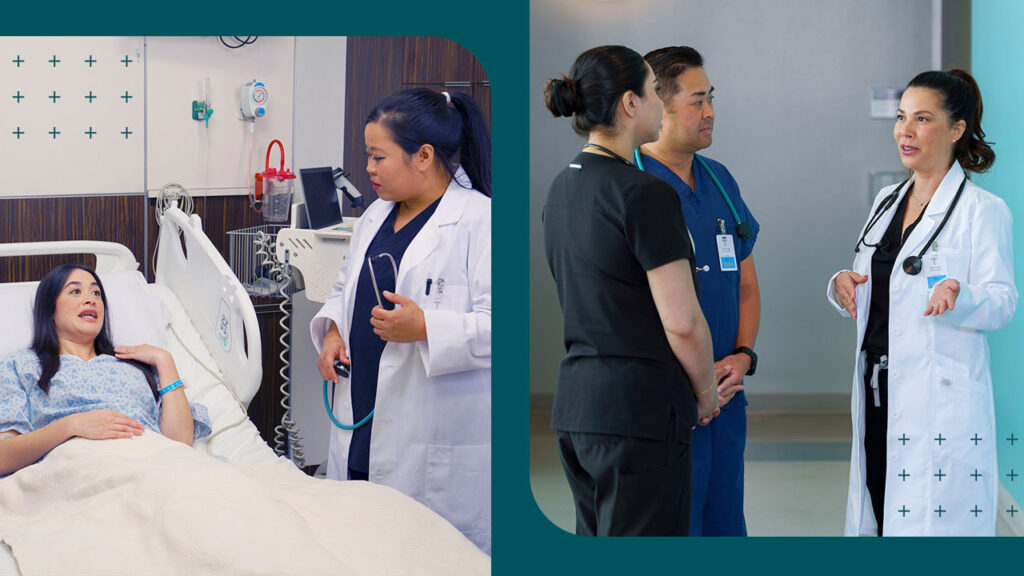As you pursue your education in the nursing profession, you will encounter clinical rotations where mental and physical preparation is required in order to deal with its demands, verses sitting in a traditional classroom and studying for an exam. These rotations can be overwhelming, whether it’s your first day, or whether you are a seasoned nursing student. During these clinical rotations for nursing students, what really helps is when you are fully prepared for the challenges that present themselves.
As you stand at the threshold of what your life is going to be like in your career as a nurse, it might help to remember that the experienced nurses you see today, were just as nervous when they started out.
Nursing school, a collection of years spent learning how to take care of people, always seems to translate to long days, resulting in exhaustion and a feeling of never being fully prepared.
Here are some insights and advice that every nurse must know before beginning clinical rotations, which will help you prepare for the road ahead.
- Be Presentable – Check Your Outfit and Your Outlook
It’s important to be dressed per your school’s policy, make sure your uniform (or scrubs) are always neat and pressed. It does not matter if you are sleep deprived and stressed: there is no excuse for showing up to work looking sloppy. Carrying a small personal hygiene bag with you will come in handy, especially if your clinical days are long. Pack all your supplies like a stethoscope, penlight, scissors, notepad, pens, watch, and a pocket drug guide the night before.Every day at nursing school, clinicals is a new day to learn, and there may be experienced figures who are tired, which may result in impatience or snappiness, but it’s a good idea to check your attitude at the door. If you remain positive, you can make the most out of the experience. With this positive outlook and humility, you’ll be surprised at how much more the nurses and staff are open to teaching you.
- Being Proactive and Communicate Well
Take the initiative to ask questions when you feel unsure and review the steps for clinical skills and procedures prior to performing them. It’s important that you welcome constructive feedback. This shows that you are not only prepared, but also eager to learn. You will encounter instructors, teachers and other staff on your clinical rotations who may not be as cooperative or enthusiastic about sharing information as others. But it’s important to learn how to work with different kinds of people who have their own personalities and ways of doing their job.During nursing school clinicals, it helps to focus on the task at hand while keeping up with your schedule. If you are too distracted about what to do next, you will surely fumble and make mistakes with some procedures.
At the end of the clinical day, report to your instructor, chart patient information and thank staff for their help and support.
- Willingness to Learn
As a nurse, there will be situations within the hospital that can be very taxing on an emotional level. As difficult as it might be, it will help to remember that the people you are caring for depend on you to help them heal. - Work Collaboratively
Registered nurses must work collectively with other registered nurses, and healthcare professionals to provide the best possible care for their patients. During your clinical rotations, it helps to partner with your peers to assist with difficult and confusing procedures. Your efforts will not go unnoticed, and these experiences will add value to your professional development. This way, you will have an opportunity to learn a lot by observing your peers’ personal styles of patient care as well.Befriending patients would also help establish a camaraderie that would benefit the patient and ensure a comfortable nurse-patient environment.
- Be Mindful of Your Own Needs
Entering the hospital or clinic without emotional preparation may have a load of negative repercussions in the long run. You do not want to reach that state of emotional stress where you suffer from a diminished capability to perform clinically or just stop being able to function as a nurse altogether.
Some of the tips mentioned below may be no-brainers, but strangely enough are often overlooked and taken for granted. - Eating well: A lot of nursing students tend to take their meals and nutrition lightly which leads to low energy levels coupled with mood swings and irritability. Set reminders to eat, even if it is just a few bites, bring small snacks and a lunch for long clinical days. Also remember to stay hydrated.
- Staying Healthy, Mentally and Physically: Regular exercise is a long-term investment toward managing stress, emotional and physical health. It is a smart survival tactic during long days and nights of rotations.
Exercising builds body strength that is a necessity for nurses when they are required to lift patients and stand for hours on end. It also helps prevent common nurse injuries like back, knee, or foot injuries. This is why nursing students are taught body mechanics in nursing school.
Quick stretching exercises before and after work will also ensure that your body is less prone to injury. High intensity workouts offer the most benefit in the least amount of time. If you’re not in the mood for a power workout, then meditation and yoga might be a better fit. It might help to have some meditation apps handy on your phone, for a quick power boost in between routines.
- Sleep: Nurses who get plenty of sleep before a shift are alert, exhibit higher efficiency and have lower chances of making mistakes than those who stay up late before a shift. This is especially true when it comes to nursing students who hope to one day become great nurses.
Clinical rotations for nursing students are your days to get out and apply your textbook knowledge to real-world situations. When faced with challenges, remember to stay positive. At WCU, clinical rotations are part of the nursing curriculum. We take pride in the fact that these rotations help our students become better prepared for their career in nursing as well as provides them with the experience needed for entry level positions.
WCU provides career guidance and assistance but cannot guarantee employment. The views and opinions expressed are those of the individuals and do not necessarily reflect the beliefs or position of the school or of any instructor or student.


